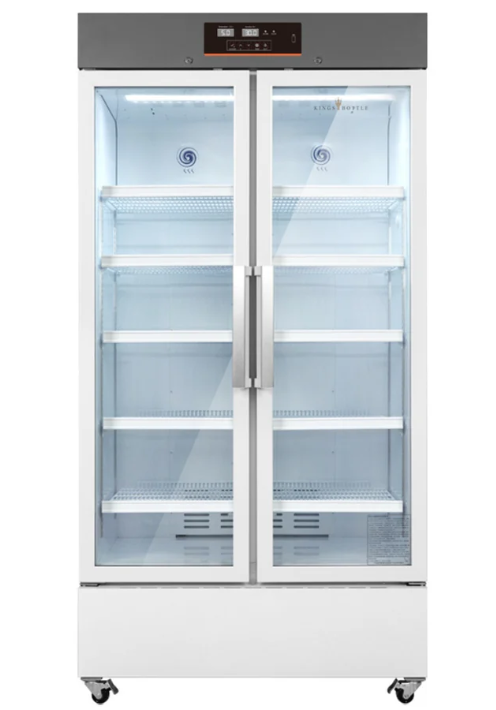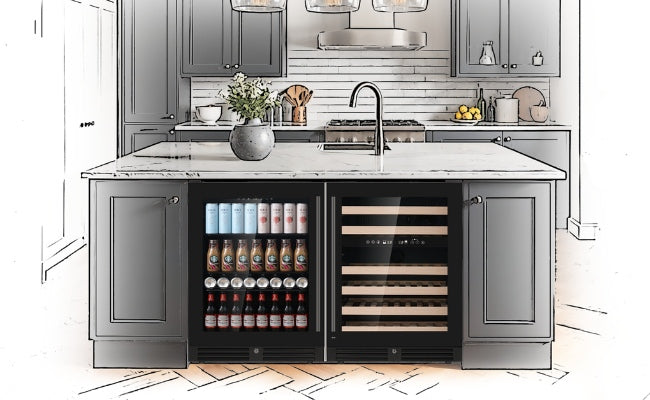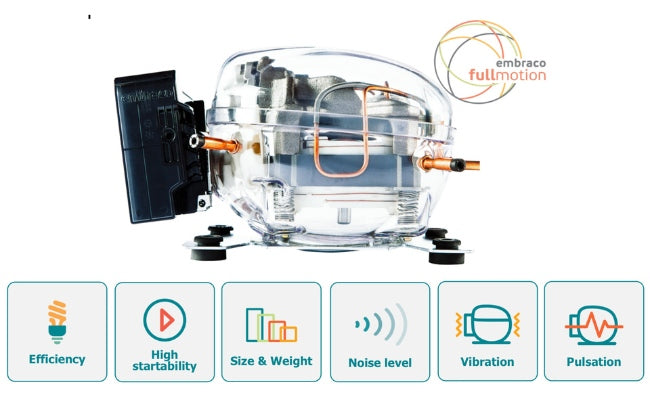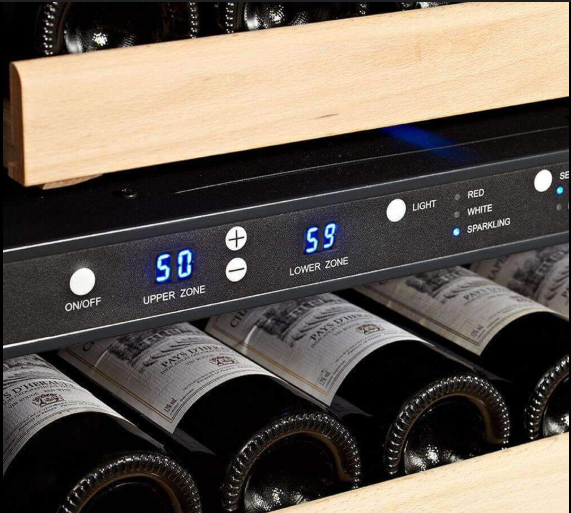
When and Why You Need a Medical Refrigerator in Healthcare Settings
Medical refrigerators are not just another appliance, they are a fundamental backbone of safe, effective healthcare delivery across modern medical environments. Their role is multi-faceted and mission-critical, ranging from the preservation of lifesaving vaccines to the safe storage of delicate laboratory samples, blood products, certain medications, and diagnostic reagents.
Understanding when and why a medical refrigerator is needed demands a deep dive into both regulatory requirements and patient safety needs, so let’s explore in comprehensive detail.
Key Takeaways:
-
Medical refrigerators are essential in every healthcare setting, from hospitals and pharmacies to laboratories and mobile vaccination units.
-
Their advanced temperature control, alarm systems, and compliance features make them fundamentally different from domestic appliances.
-
Relying on standard fridges risks regulatory penalties, financial loss, patient harm, and erosion of community trust.
-
Best practice is to incorporate purpose-built medical refrigerators as part of your core patient safety and quality framework.
What is a Medical Refrigerator?
Medical refrigerators are distinctly different from household refrigerators. Engineered for precision and reliability, they maintain specific temperature ranges (commonly between 2°C and 8°C) and integrate advanced features like continuous digital temperature monitoring, alarm systems, controlled access, and even backup power sources.
Designing a refrigerator for a healthcare setting also means using easy-to-sterilize materials and interiors, as well as storage options that support organization and regulatory compliance. Besides vaccines and medications, biological samples (blood, plasma, DNA, RNA), flammable chemicals, specialty drugs, and standards for laboratory reagents are all commonly stored in these units. Their design makes them indispensable throughout healthcare, research, and pharmacy settings
|
Feature |
Why it Matters |
|
Temperature Range |
Must match your products’ requirements |
|
Alarm and Notification |
Rapid response to issues |
|
Backup Power/UPS |
Assures content safety during outages |
|
Storage Capacity |
Fits current and future inventory needs |
|
Digital Logging System |
Simplifies compliance |
|
Adjustable Shelving |
Helps with segregation, inventory, and access |
|
Regulatory Certification |
Meets all local and international standards |
When is a Medical Refrigerator Needed?
1. Vaccine Storage
Vaccines are often the most temperature-sensitive pharmaceutical products in any healthcare facility. Many vaccines lose potency and become ineffective, or even unsafe, if exposed to temperatures outside of the 2°C–8°C range, even for a short period. In hospitals, clinics, pharmacies, public health units, and vaccination centers, medical refrigerators are mandatory.
2. Medication Storage
Certain medications, especially biologics, insulin, some antibiotics, eye drops, and chemotherapy agents, require cold storage for safety and efficacy. Most health authorities prohibit storing these alongside food or in regular fridges, making a medical refrigerator essential in:
-
Hospital and clinic pharmacies
-
Oncology wards
-
Home healthcare with injectable drugs
-
Long-term care facilities and nursing homes
3. Blood, Plasma, and Tissue Storage
Blood banks, hospitals, and surgery centers rely on medical-grade refrigerators for storing blood products, plasma, platelets, and tissue samples. Temperature excursions can render these products dangerous or unusable, risking serious harm or death.
-
Surgical and emergency departments
-
Blood transfusion services
-
Organ and tissue transplant units
4. Laboratory and Research Applications
Laboratories require stable conditions for reagents, samples, and cultures sensitive to light and temperature. Research institutions, pathology labs, and diagnostic testing centers employ medical refrigerators to:
-
Preserve biological samples before analysis
-
Safeguard specimen integrity for research
-
Maintain reagent quality
5. Regulatory and Accreditation Requirements
Laws and accreditation bodies (e.g., CDC, FDA, EMA, state health departments) often demand proof of compliant and validated temperature-controlled storage for specific products. Inspections and quality audits routinely check for:
-
Proper equipment use and calibration
-
Temperature monitoring records
-
Separation from personal food items
-
Alarm and backup protocols
6. Emergency Preparedness and Outbreak Response
During outbreaks or vaccine drives (like COVID-19 mass immunizations), the need for reliable and scalable cold storage spikes. Medical refrigerators become even more essential in:
-
Vaccine storage and deployment hubs
-
Disaster-response units
-
Mobile medical clinics
-
Temporary or remote field hospitals
Why Use a Medical Refrigerator?
1. Precise Temperature Control
Medical refrigerators utilize digital controllers, sensors, and intelligent algorithms to prevent temperature excursions, unlike domestic fridges which cycle in broader, less regulated bands. Even brief temperature deviations, known as ‘excursions’, can irreversibly damage sensitive items, making them less effective or unsafe to use. This is often invisible to the naked eye, so any lapse in temperature control could mean delivering compromised medication or vaccine to a patient.
2. Alarm and Monitoring Systems
Sophisticated alarm and temperature logging capabilities are vital. These include:
-
Visual and audible alarms for out-of-range temperatures
-
Alerts for door-ajar, power failure, or battery low
-
Remote monitoring (sometimes with SMS/email notifications)
-
Continuous data logging for regulatory review
With such features, staff can address issues before they result in loss of expensive supplies or threaten patient safety. Regular refrigerators lack these critical warning systems.
3. Backup Power Capability
In healthcare, a power outage isn’t just inconvenient, it can be catastrophic. Medical refrigerators are designed with options for battery backups, connections to facility emergency generators, or even integrated uninterruptible power supplies (UPS). These systems allow for continued operation during blackouts, protecting content integrity and patient schedules.
4. Regulatory Compliance
Medical settings are governed by robust legal frameworks:
|
Requirement |
Standard Refrigerator |
Medical Refrigerator |
|
Temperature (2–8°C) |
NO – fluctuates |
YES – precise control |
|
Data logging |
NO |
YES |
|
Alarm system |
NO |
YES |
|
Security (lock/access) |
SOMETIMES |
YES |
|
Regulatory compliance |
NO |
YES |
|
Feature |
Why it Matters |
|
|
Temperature Range |
Must match your products’ requirements |
|
|
Alarm and Notification |
Rapid response to issues |
|
|
Backup Power/UPS |
Assures content safety during outages |
|
|
Storage Capacity |
Fits current and future inventory needs |
|
|
Digital Logging System |
Simplifies compliance |
|
|
Adjustable Shelving |
Helps with segregation, inventory, and access |
|
|
Regulatory Certification |
Meets all local and international standards |
Failing an inspection due to improper storage can bring regulatory fines, lost accreditations, reputational damage, and patient harm.
5. Reduced Risk of Contamination
Medical refrigerators use easy-to-clean interiors, minimal seams, smooth shelving, and specialty gaskets to support infection prevention and minimize cross-contamination between samples and medications. This is crucial in healthcare environments, where sterility and infection control are paramount.
6. Enhanced Organization and Capacity
With adjustable compartments, drawers, and shelving, medical refrigerators support safe, logical segregation of products, critical when different vaccines, blood products, or lab samples must never mix. Ample and organized storage allows for inventory control, minimizes waste, and makes stock checks efficient during emergencies.
7. Extended Shelf Life and Reduced Waste
Products stored at approved temperatures remain viable longer. This means:
-
Less inventory loss through spoilage
-
Cost savings for facilities
-
Improved vaccine and medication availability for patients
Risks of Not Using a Medical Refrigerator
1. Drug/Vaccine Failure and Patient Harm
Administering improperly stored vaccines or drugs can result in:
-
Reduced effectiveness (leading to suboptimal disease prevention or treatment)
-
Increased side effects or risk of adverse reactions
-
Serious legal liability for facilities and practitioners
2. Regulatory Penalties
Noncompliance with storage regulations can yield:
-
Fines and legal actions
-
Accreditation loss
-
Disqualification from participating in vaccine programs
3. Wasted Inventory and Financial Loss
A single temperature excursion could mean disposing of thousands of dollars in critical inventory, a fiscal hole many clinics or health programs cannot afford.
4. Erosion of Patient and Community Trust
Healthcare is built on trust. Administering compromised vaccines or drugs can irreparably harm the relationship between a facility and its community partners or patient base.
Best Practices for Medical Refrigerator Use
1. Placement and Environmental Controls
-
Install refrigerators away from heat sources, direct sunlight, and out of high-traffic areas.
-
Ensure ventilation for efficient heat dissipation.
2. Temperature Monitoring and Documentation
-
Use built-in or third-party data logger systems.
-
Record temperatures at least twice daily, if not automatically polled.
-
Review alarm logs and set corrective action protocols.
3. Inventory Management
-
Label products with receive and expiry dates.
-
Rotate stock according to "first-expiry, first-out" (FEFO) principles.
-
Immediately quarantine and discard any product exposed to unsafe temperatures.
4. Security and Access Control
-
Restrict access to authorized personnel
-
Use locks and audit trails for high-value or high-risk products.
5. Cleaning and Maintenance
-
Clean the interior and exterior regularly with approved disinfectants.
-
Schedule preventive maintenance checks.
-
Calibrate temperature monitoring devices periodically.
Frequently Asked Questions (FAQs)
Why can’t I use a domestic refrigerator for vaccines or medications?
Domestic fridges have wide temperature swings, unreliable control, and no alarms, making them unsuitable, unsafe, and non-compliant for critical pharmaceutical storage.
Do I need a medical refrigerator if I’m only storing a small amount of medication?
Yes. Even a single compromised syringe, vial, or sample can endanger a patient and break regulatory requirements. Small-capacity medical refrigerators are available for such needs.
How do I prove compliance during an audit or inspection?
Employ a medical refrigerator with continuous temperature logging, regular calibration, and detailed documentation of both functioning equipment and staff procedures.
What’s the difference between a pharmacy fridge and a laboratory fridge?
While the underlying technology is similar, pharmacy fridges may focus on access security and medication storage, while lab fridges might offer configurations suitable for sample segregation and rapid cooling.








